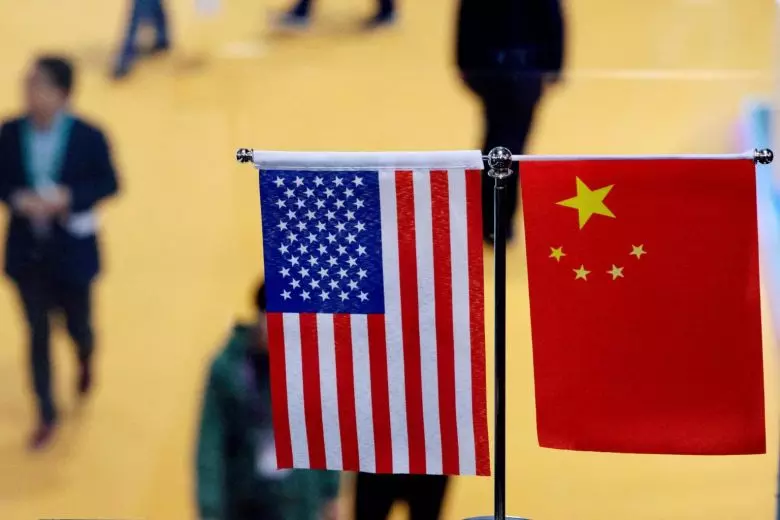
Trump slaps extra 100% tariff on China; might scrap talks with Xi Jinping
The US President has reignited his trade war with Beijing over export curbs on rare earth minerals.

President Donald Trump on Friday (October 10) placed an additional 100 per cent tax on Chinese imports starting on November 1 or sooner, potentially escalating tariff rates close to levels that in April fanned fears of a global recession.
The president expressed frustration with new export controls placed on rare earth elements by China — and said on social media that “there seems to be no reason” to meet with Chinese leader Xi Jinping as part of an upcoming trip to South Korea.
China is becoming hostile, says Trump
On Thursday, the Chinese government restricted access to rare earth minerals, requiring foreign companies to get special approval for shipping the metallic elements abroad. It also announced permitting requirements on exports of technologies used in the mining, smelting and recycling of rare earths, adding that any export requests for products used in military goods would be rejected.
Also Read: No Nobel for Trump: US House slams Nobel Committee, says it placed 'politics over peace'
On social media, Trump described the export controls as “shocking” and “out of the blue.” He said China is “becoming very hostile” and that it's holding the world “captive” by restricting access to the metals and magnets used in electronics, computer chips, lasers, jet engines and other technologies.
Trump said in a post that “starting November 1st, 2025 (or sooner, depending on any further actions or changes taken by China), the United States of America will impose a Tariff of 100% on China, over and above any Tariff that they are currently paying.” The president also said the US government would respond to China by putting its own export controls “on any and all critical software” from American firms.
The Chinese Embassy in Washington did not immediately respond to an Associated Press request for comment.
'Cold war continues'
The United States and China have been jostling for advantage in trade talks, after the import taxes announced earlier this year triggered the trade war. Both countries agreed to ratchet down tariffs after negotiations in Switzerland and the United Kingdom, yet tensions remain as China has continued to restrict America's access to the difficult-to-mine rare earths needed for a wide array of US technologies.
There is already a backlog of export license applications from Beijing's previous round of export controls on rare earth elements, and the latest announcements “add further complexity to the global supply chain of rare earth elements,” the European Union Chamber of Commerce in China said in a statement.
Flashpoints galore
There are other flashpoints in the trade relationship, including US restrictions on China's ability to import advanced computer chips, sales of American-grown soybeans and a series of tit-for-tat port fees being levied by both countries starting on Tuesday.
Trump did not formally cancel the meeting with Xi, so much as indicating that it might not happen as part of a trip at the end of the month in Asia. The trip was scheduled to include a stop in Malaysia, which is hosting the Association of Southeast Asian Nations summit; a stop in Japan; and a visit to South Korea, where he was slated to meet with Xi ahead of the Asia-Pacific Economic Cooperation summit.
Sun Yun, director of the China program at the Stimson Center, said Beijing's move was a reaction to US sanctions of Chinese companies this week and the upcoming port fees targeting China-related vessels — but said there's room for de-escalation to keep the leaders' meeting alive. “It is a disproportional reaction,” Sun said.
“Beijing feels that de-escalation will have to be mutual as well. There is room for manoeuvre, especially on the implementation.”
Gracelin Baskaran, director of the Critical Minerals Security Program at the Center for Strategic and International Studies in Washington, DC, said China holds leverage because it dominates the market for rare earths with 70 per cent of the mining and 93 per cent of the production of permanent magnets made from them, which are crucial to high-tech products and the military.
Also Read: Trump administration plans new curbs on H-1B visas to protect US workers
“These restrictions undermine our ability to develop our industrial base at a time when we need to. And then second, it's a powerful negotiating tool,” she said.
Craig Singleton, senior director of the China program at the Foundation for Defense of Democracies, a think tank, said Trump's post could “mark the beginning of the end of the tariff truce” that had lowered the tax rates charged by both countries.
“Mutually assured disruption between the two sides is no longer a metaphor,” Singleton said. “Both sides are reaching for their economic weapons at the same time, and neither seems willing to back down.”
(With Agency inputs)

